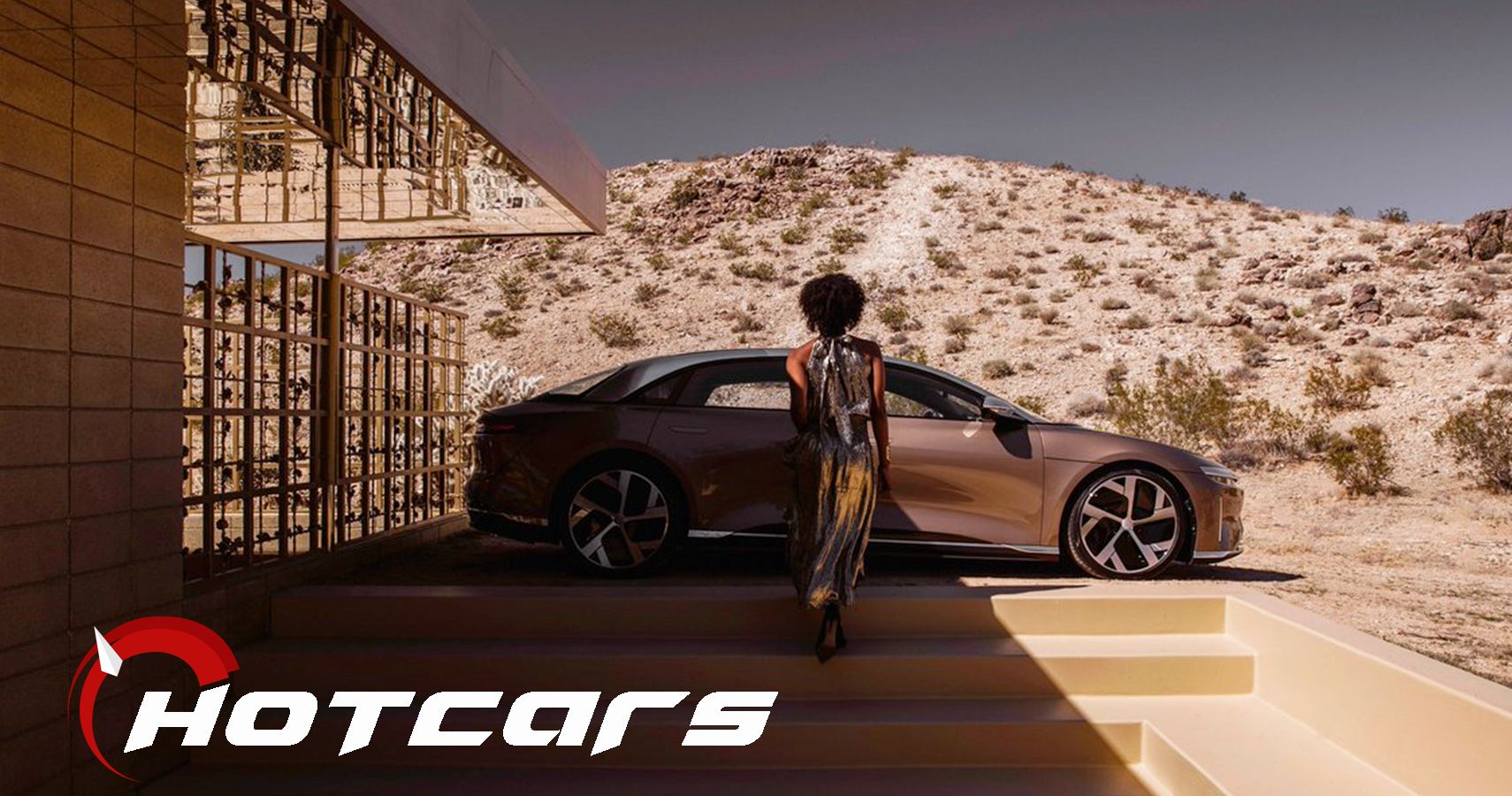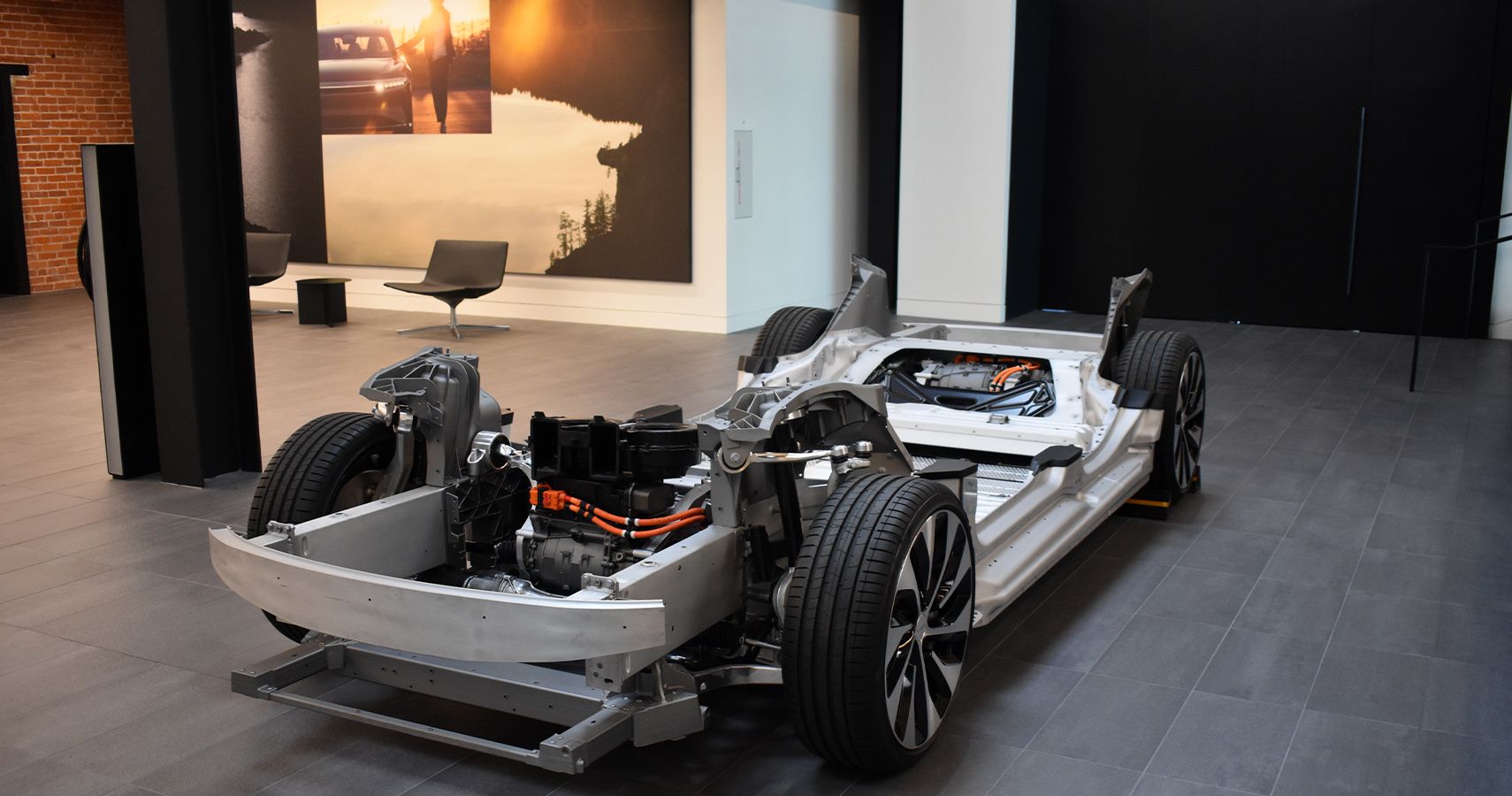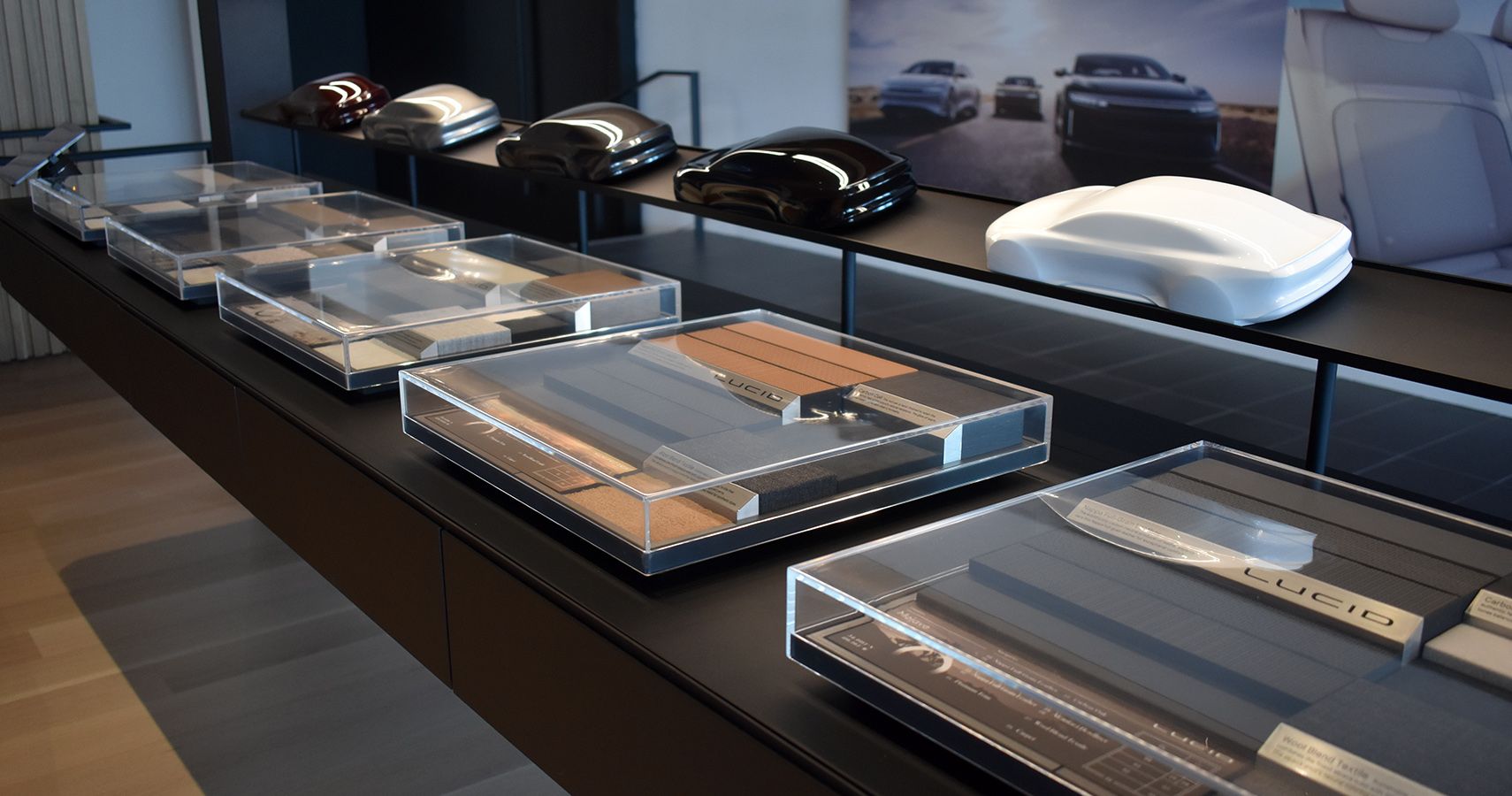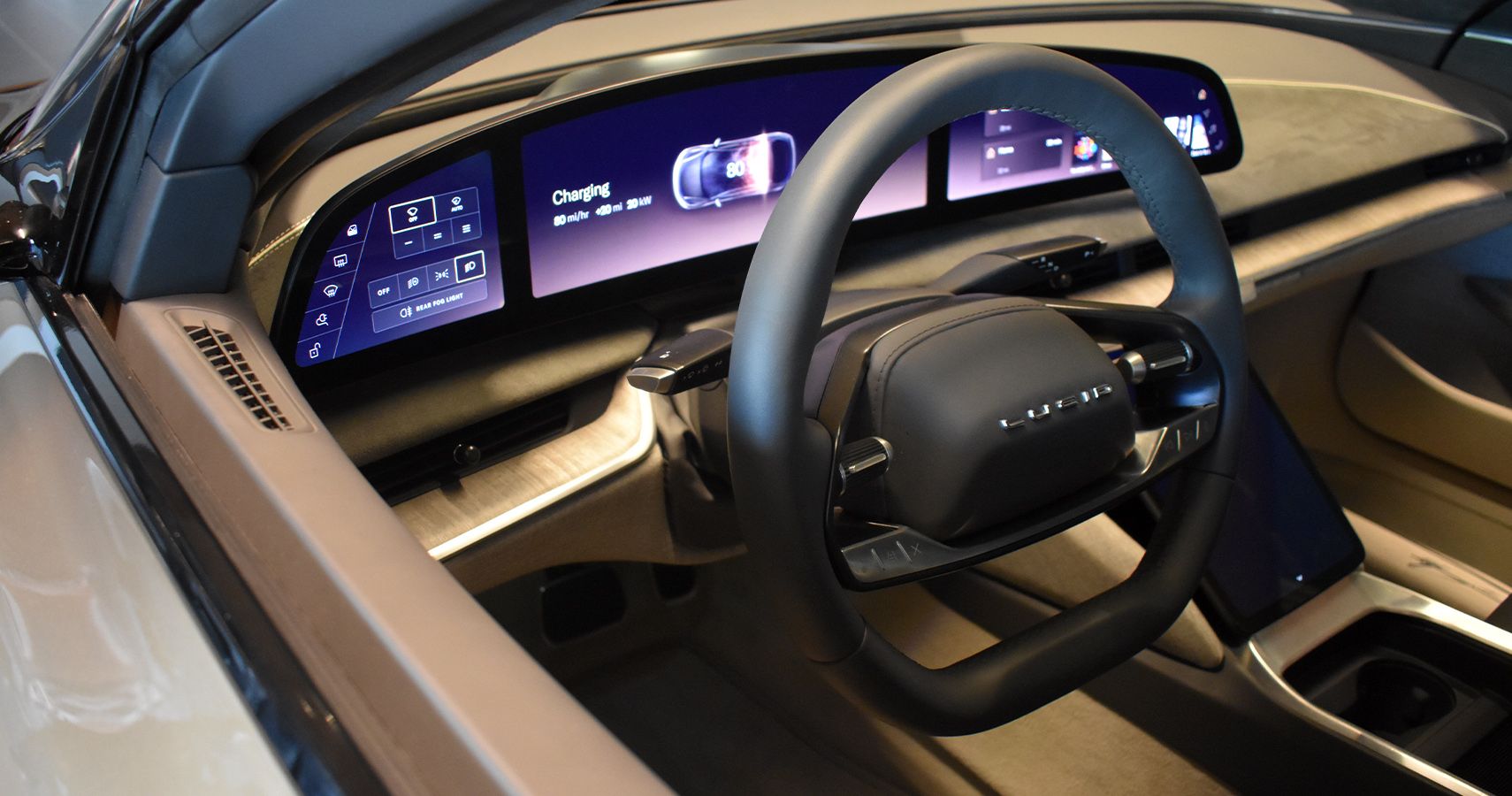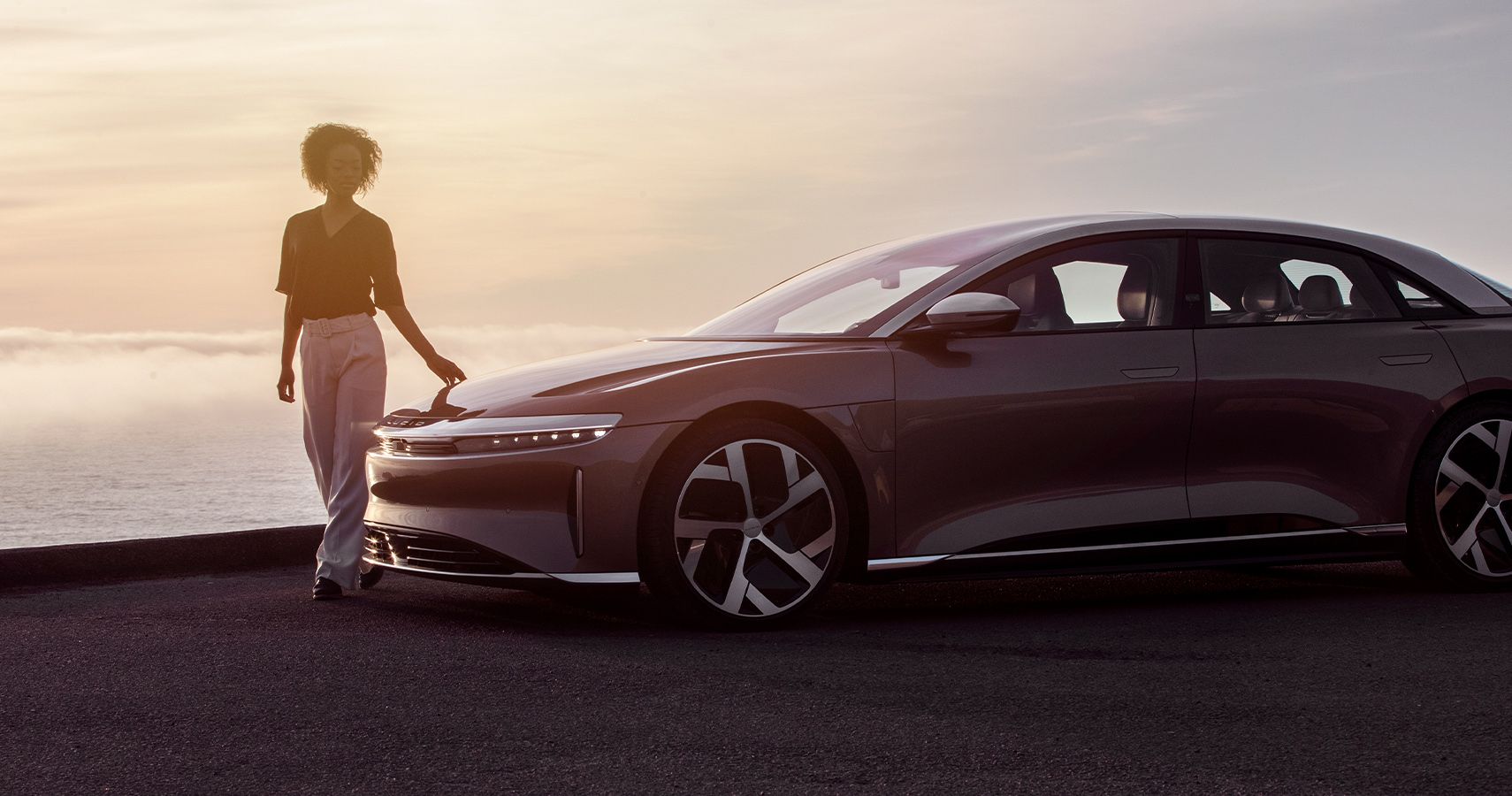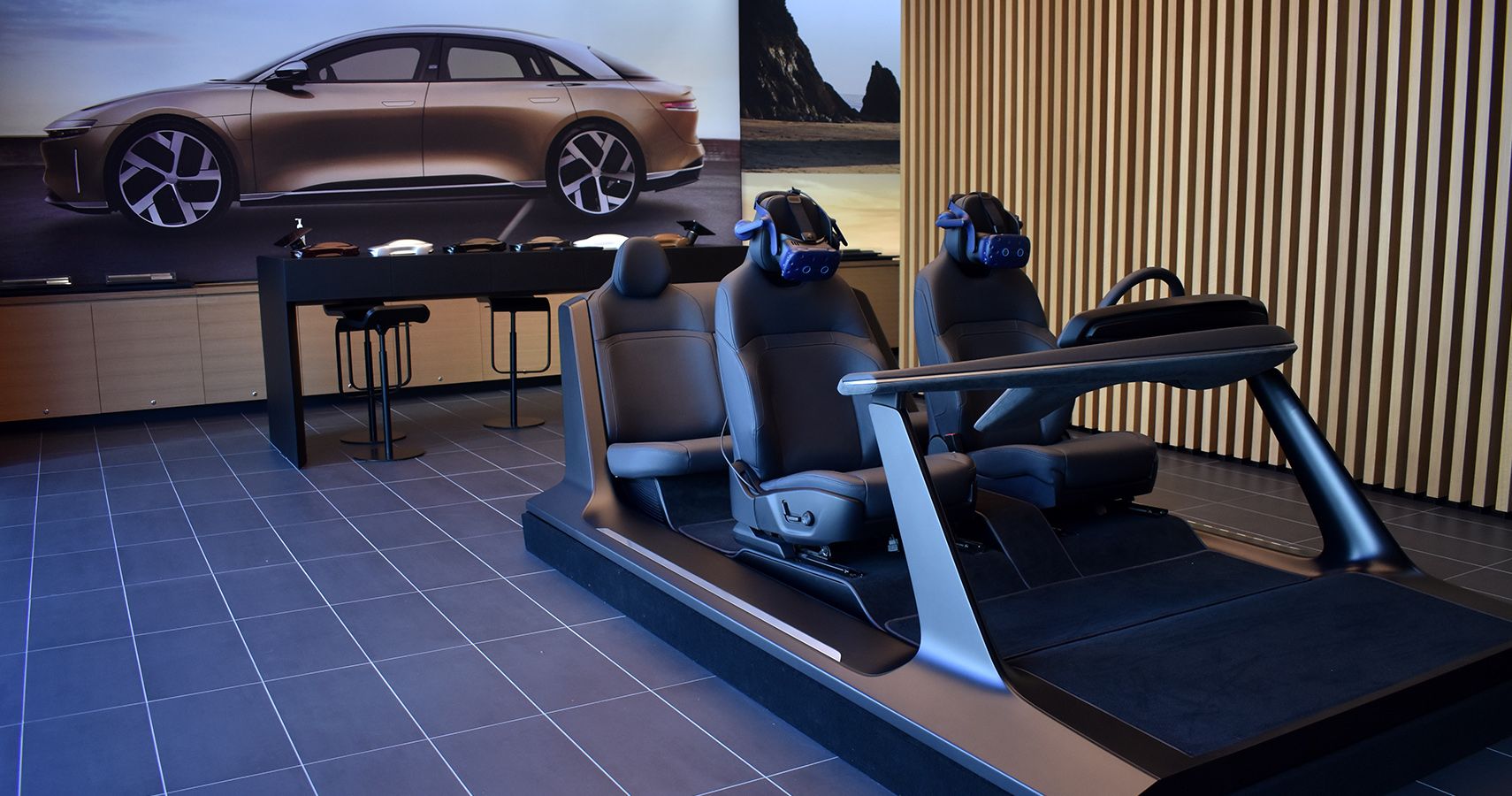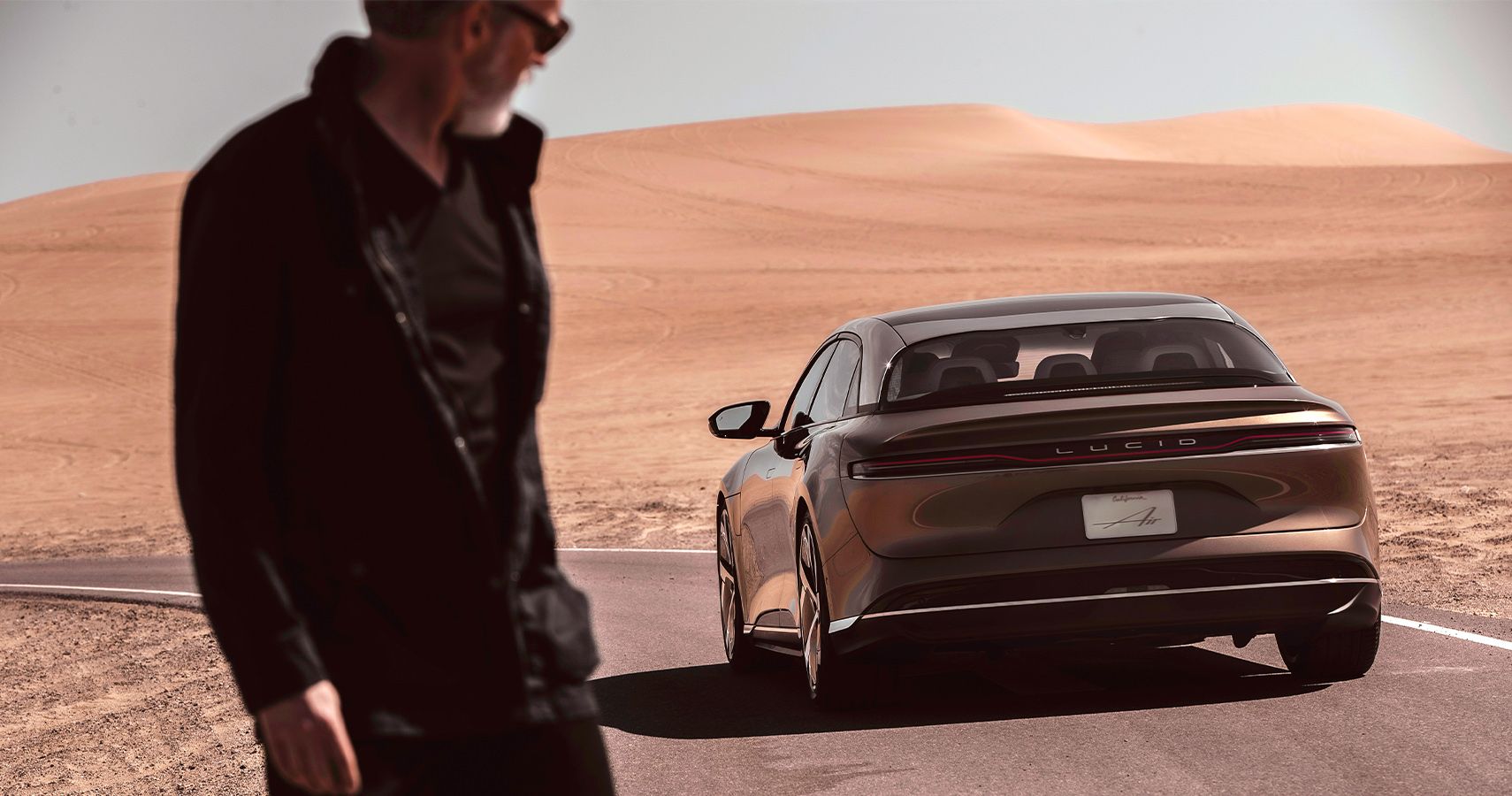Lucid Motors sits on the cusp of delivering a production version of the Air EV after promising a resounding Tesla beater for years. Perhaps the most viable out of a recent host of new companies unveiling ground-up EVs to the market, Lucid hopes to take the industry by storm with the Air, an initial high-end super sedan preceding plenty of other products in the development pipeline.
In the leadup to the Air's delayed launch (due to production issues amid the pandemic), I've interviewed VP of Design Derek Jenkins about the car's design and engineering, then visited one of the company's flagship showrooms, known as Lucid Studios, to check out the customer experiences offered in place of actual test drives (getting a chance to experience the Air's in-person physical form at the same time). More recently, Lucid unveiled techy UI and UX features, including what seems like an impressive partnership with Dolby to transform the aural landscape of the Air.
As an automotive writer, I've watched Lucid positioning both the Air and the company itself throughout the slow buildup to launch, and a specific term jumped off the screen at me as I researched the Dolby Atmos system, where Lucid's copywriters summed up the firm's entire ethos with the term "post-luxury." My curiousity piqued, I reached out to Lucid hoping to learn more and ended up deep in conversation with VP of Marketing and Communications Jeff Curry as he shared the origins of the post-luxury concept and how it guides the entirety of Lucid's design, production, and marketing techniques.
Lucid VP of Marketing and Communications Jeff Curry
Curry joined Lucid Motors in December of 2019 after a career that spanned a range of legacy automobile manufacturers, including Ferrari, Audi, and Jaguar Land Rover. Initially, he served as a consultant before joining on at the executive level, but the timing couldn't have been better—with the Air itself already well into development but the brand's emergence onto the consumer landscape still at the infant stages. For Curry, the opportunity to begin defining what he calls a "recipe" for the marketing push sounded perfect after working at established brands for so long.
“For me, one of the biggest things about Lucid is this idea that we own all of our own product," Curry told me. "The technology of the car, developed all in house, designed from scratch to really be the benchmark in the EV space and to advance the state of the art for electric vehicles. That, for me, was a real standout that marked the company apart from anyone else that might be in the space. Because I think it’s essential that you have a real standout product, especially when you’re going to makret with something that’s truly new like this."
From a branding perspective, the challenge became coherently presenting to would-be buyers all the "inherent goodness" that Curry believes Lucid and the Air provide—largely because they would be buying from a company that's never actually sold anything before. Of course, it helps when the product under development aims to stand head and shoulders above its competition, as Lucid believes the Air will in just about every aspect, including style, performance, efficiency, and more.
"At the core, we’re a product engineering and design company," he said, "A technology company. So really, that invention that’s at the core of the Lucid Air gives you an incredible base off of which to then craft a brand that’s super compelling to consumers and really attracts people to something that's demonstrably new in the market."
Marketing Lucid Versus Rebranding Legacy Automakers
His background in the automotive industry provides some context for Curry to both accept pre-existing marketing techniques, as established by automakers over the past century, while also discovering the ways that a new EV and EV brand can represent something entirely fresh—and how a corresponding marketing approach should, as well.
“I think there’s different ways to look at the challenge," he explained. "In some ways, you’re starting from scratch, so you don’t have that baggage that the legacy car brands have in trying to convince consumers that despite decades of producing gas-powered cars, suddenly they’re experts in electrification."
“Consumers see electric vehicles as something fundamentally different and distinct," Curry continued. "They want to buy from brands that are expert and are offering the best of what is a transformative technology. So I think that’s where Lucid comes in and has a real opportunity as a brand-new entrant—a brand-new brand—to really define our own world and really set the expectations for what you’re going to get from a Lucid product, a Lucid electric vehicle."
Developing A Strategy Alongside The Air Itself
Luckily, Curry joined Lucid early enough that the would still undergo plenty of design and development before hitting the market—so he had the time to ingest everything that makes the car and the brand stand out from an increasingly crowded field, then craft an aesthetic that accurately presents the ethos behind the car to the world. Take one look at any of Lucid's marketing photos, videos, experiences, or events and the clear aesthetic through-line emerges immediately.
“The translation of all of the Lucid Air, into how do we go to market, how do we show it in photos, how we show it in the studios, all of that has been designed in line with the development of the car," Curry said. "That’s why there’s such a cohesion between the design of the car, the feel of the Lucid brand, even down to the detail of the beautiful script Air logo that’s sort of romantic, even evocative of a bygone era and how cars were called and named. There’s a lot of feels in all of that and how it was crafted together."
The car should almost sell itself, given the promises of 500-mile-plus range, mind-numbing acceleration, and next-generation technology housed within a unique form. But Curry's in-house team manages to emphasize the central theme that makes the Air's overall impression so instantly recognizable—at least, to anyone following the auto industry these days.
"One of the big advantages that we have at Lucid, and this is part of our recipe for marketing, is we have our own internal creative team so, basically, our agency is internal, if you will. The folks that are working on delivering the visual language of Lucid, and how it looks in photography, and how it’s always presented in video, they are Lucid people. So that helps us be super consistent when it comes to our marketing approach."
Post-Luxury From A Consumer Perspective
But even if gearheads and EV enthusiasts may know all about Lucid by now, how can a new company reach a target customer base? (Especially a target customer base necessarily restricted to the 1% of the 1% given the Air's initial price tags that streth well into the six-figure range for early Dream Edition reservations.) Therein lies the "post-luxury" strategy that Curry helped to refine.
“The other part of it, for a new brand, is you’re really coming at it from the consumer point of view," he told me. "And so, if you think about where consumers are going to be in the future, especially high-end, affluent consumers, as we know from our research, they’re increasingly valuing things like design, technology, sustainability, and having a direct consumer relationship, being close with the brands that they choose to engage with."
Those customers, according to Curry and Lucid's extensive market research, will immediately recognize and identify with the "post-luxury" sensibility, as accentuated by advanced technology and highly textured materials on the interior to go alongside mind-boggling performance claims.
"The 'post-luxury' term was really about this switch that we see in luxury," he explained. "We were talking about the future of luxury, a lot of different terms and really, it was more than that. It was in conversations that I had with Derek Jenkins, my counterpart on the design side. We really crafted and came up with it together, in a series of sessions that we had, really defining what this product was about. In some ways, just saying the future of luxury sounded a bit trite—and not enough of the transformation that we saw as underway."
"It was really a concept that the car had been designed with and around, but putting that term in really crystallized it for us, about how this was that new era of luxury... Helping us know whether what we’re doing feels of the future, does it feel right? And it’s a filter for us, internally."
Selling The California Dream
One of the main ways that Lucid evokes the feeling of post-luxury so clearly, throughout every shred of an extensive marketing effort, involves selling a place just as much as a product. And that instantaneously identifiable place—and the feeling it creates—goes by the name California.
"I think there’s this universally understood idea of California worldwide," Curry said. "It’s kind of the land where there’s everything from incredible technology, aerospace and the space race, to the origins of aviation, all based in California. There’s the Hollywood community and the iconic entertainment aspect, there's this incredible natural beauty and environment, from the desert beauty to the coastline and the mountains."
"So if you think about all these aspects of California," he went on, "It’s a super rich landscape for a brand to be from, for its origin. And all of that you find in aspects of the Lucid brand—and certainly in the Lucid Air, our first product, too. And we’ve seen that that has a lot of appeal globally. We have reservations from a lot of different places all over the world, we’ve seen this is going to be a really appealing concept. There’s just generally a super positive image of California, globally, that I think will help inform how we present the car and go to market. It’s where a lot of innovations are born, the 'born in Silicon Valley' idea transcends globally and it’s super appealing to consumers."
Creating Experiences At Lucid Studios
As much as the California concept might evoke feelings of place when looking at images of a Lucid Air on social media or in the news, the theme continues into the Lucid Studios opening up all over America—all with the same very purposeful, futuristic, post-luxury vibe. But I asked Curry how much the pandemic affected Lucid's hopes for the customer experience within each Studio, since the sheer numbers of potential buyers willing to visit one of the tactile, VR-enhanced, informative sessions surely dropped during all the shutdowns, lockdowns, and social distancing measures. He countered that the timing, in concert with the (perhaps to be expected) production delays, actually feels a little fortuitous.
"In some ways, it’s meeting the moment," he admitted. "As people are opening up and wanting to go back into physical experiences and have that opportunity to go and see and touch and feel the car and have that as part of the experience, those are all available now."
Curry also pointed out that Lucid's existing plans to offer a streamlined experience online and via virtual reality also fits into the post-pandemic era somewhat, as well—which fits perfectly into the post-luxury concept of what the car buying process could one day be (a wonderful dreamland where high-pressure sales tactics fade blissfully into extinction).
“At the same time," he emphasized, "If you don’t want to come to a physical studio, you don’t have to. We’ll do everything remotely, we’ll deliver the car to you, you can transact with us digitally and online, and we’ve designed our full customer journey with that in mind, too. And so I think that that’s another part of that post-luxury thing, it’s really on the consumer’s terms. And that’s been designed from the outset to be part of our approach to the marketplace. It’s really up to how you want to interact with us.”
Everything Coming Together Soon
Lucid plans to begin customer deliveries of the production-model Air in the second half of 2021—a time period beginning about three weeks after Curry and I spoke. So the true test of Curry's strategy, boiled down to the metrics of sales numbers, quickly approaches. So far, early reservation figures (including the sold-out high-spec Dream Edition) look good and, of course, no executive worth his salt could beg off from placing his own order for an inaugural, potentially groundbreaking product like the Air. Does he get an early pre-production tester, though?
“I don’t have my own Lucid Air yet, but I am a reservation holder," Curry laughed. "So I hope to have one someday. That’s on my aspiration list."
An Air joining his garage would perhaps represent two technological leaps into the automotive future for Curry, from the sporty luxury of raspy, air-cooled Porsches into the silent whirring of a post-luxury, all-electric super sedan. Regardless of that multi-generational gap, however, Curry sounds ready to make the plunge and bring a little California spirit into his life.
"I’m a car fanatic at my core," he admitted. "I have an '87 Porsche 911 as my fun car. Mine is the Targa with the Turbo-look widebody. But that’s sort of a fun car for the weekend, otherwise I live in New York City, so I don’t have a car."
Sources: lucidmotors.com, dolby.com, ferrari.com, audiusa.com, and jaguarlandrover.com.

